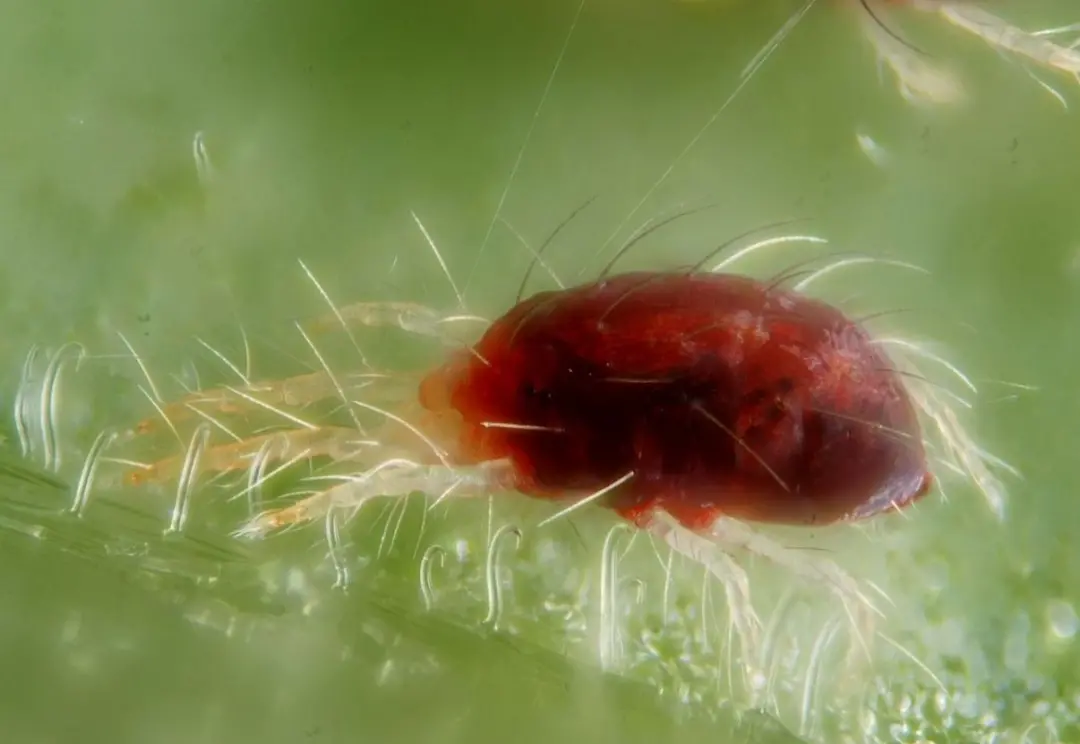Citrus full-clawed mite (commonly known as citrus red spider) is the most important pest on citrus, which causes white spots on the surface of leaves and fruits, and even causes fruit and leaf drops, thus affecting citrus yield and quality. In some orange orchards, due to the resistance of citrus red spiders to chemical pesticides, orange farmers can use chemical pesticides more than 20 times a year to control citrus red spiders, which is very easy to cause ecological environmental damage, and increases the risk of citrus fruit pesticide residues exceeding the standard, so it is necessary to choose some biological pesticides to carry out control experiments.

Studies have shown that quinoa alkali and mineral oil have a certain control effect on citrus red spiders, and mineral oil emulsions are also widely used in the control of citrus red spiders, in order to study its actual effects, by the Zhejiang Citrus Research Institute and other experts to organize experiments, to Wenzhou mandarin citrus special early maturing variety "big point" as the test variety, The 0.5% quinoa alkali solution agent (hereinafter referred to as quinoa alkali) produced by Chengdu New Chaoyang Crop Science Co., Ltd. and the 99% mineral oil emulsion (hereinafter referred to as mineral oil) produced by Tianjin Luying Co., Ltd. were used to verify the control effect of quinoa alkali and mineral oil on citrus red spider after mixing.
The specific results are as follows:
Analysis of results
The control effect of 1 day after the mixed treatment of quinoaline and mineral oil was significant (p<0.05) was lower than that of quinoa alkali alone, and the difference between the control effect of 3 to 21 days after the drug and the treatment of quinoa alkali alone was not significant (p>0.05), and the control effect was significant (p<0.05) 30 days after the drug was higher than that of thresoine alone; regardless of whether mineral oil was mixed or not, there was no significant difference in the control effect between different concentrations of quinoa alkali treatment in the same period (p>0.05) (see Table 1).
Compared with the use of averatine alone, the mixed mineral oil of quinoaline showed a negative synergistic effect in 1 to 7 days after the drug, of which the negative increase after the drug was the most obvious, -35.09% and -17.91%, respectively, and the positive increase after the drug was positive in 14 days and later, of which the positive increase after the drug was the most obvious, reaching 27.47% and 41.44%, respectively.
summary
As an important means of agricultural production, pesticides are mainly divided into chemical pesticides (synthetic pesticides), biological pesticides (and divided into animal and plant pesticides and microbial source pesticides) and mineral source pesticides (mainly mineral oil emulsions, sulfur preparations, copper preparations, etc.).
Among them, plant-derived pesticides have little impact on the natural enemies of pests, are easily degraded in the environment, and even if they are used for a long time, pests are not prone to drug resistance. Citrus red spider is one of the most important pests affecting citrus production, and the current control of citrus red spider mainly relies on synthetic chemical pesticides and microbial source pesticides (such as avermectin). In recent years, plant-derived pesticides have also begun to apply pesticides to control citrus red spiders, for example: there are reports that matrine, as an efficient broad-spectrum insecticide, also has a good control effect on citrus red spiders; Li Fushan and other experiments have found that after using 0.5% quinoa alkali solution 600 times liquid for 7d, the control effect of citrus red spiders can reach 81.84%. The unique mechanism of action of quinoaline is toxic to the muscles of pests, causing pest feeding cessation and relaxation paralysis after use, and its hydrolysis products are low in toxicity to mammals, but a powerful knockdown agent for insects.
Petroleum mineral source pesticides are one of the three types of pesticides (natural enemies, biological source pesticides and mineral source pesticides) allowed to be used in the "Guidelines for the Use of Pesticides in Green Food Production", which is a class of pollution-free pesticides, and has the effect of insecticidal, sterilization, weeding, efficiency, and can also be used as a solvent for most ester-soluble pesticides. Mineral oil emulsion is also a pesticide allowed in the production of organic food in the world, which can effectively protect natural enemies, will not produce resistance, and has a direct killing and rejection effect on some small pests and mites in citrus orchards. Fang Xiaoduan and other experiments found that mineral oil emulsion alone can better control citrus red spiders, and mineral oil can also be used as an auxiliary to improve the effect of chemical pesticides. Yang Tingmi et al. found that the use of mineral oil as an auxiliary enhances the quick potency and effectiveness of spironite on citrus red spiders, so that the control effect of thiamethoxam on citrus psyllid is increased by 3%, and the reduction and control effect is increased by about 6%, that is, the addition of mineral oil has a reducing and increasing effect on spironite and thiazine.
Therefore, in production, modern mineral oil can be used as the basic agent, according to different orchard phenology, different diseases and insect pests, alone or mixed with other efficient, low toxicity, low residue chemical agents for disease and pest control methods, that is, the formation of added mineral oil disease and pest control mode. Our research on the synergy of the mixed use of biologically derived pesticides, mineral-derived pesticides and chemical synthetic pesticides is of great significance for the reduction of the use of citrus chemical pesticides and the better protection of the ecological environment.